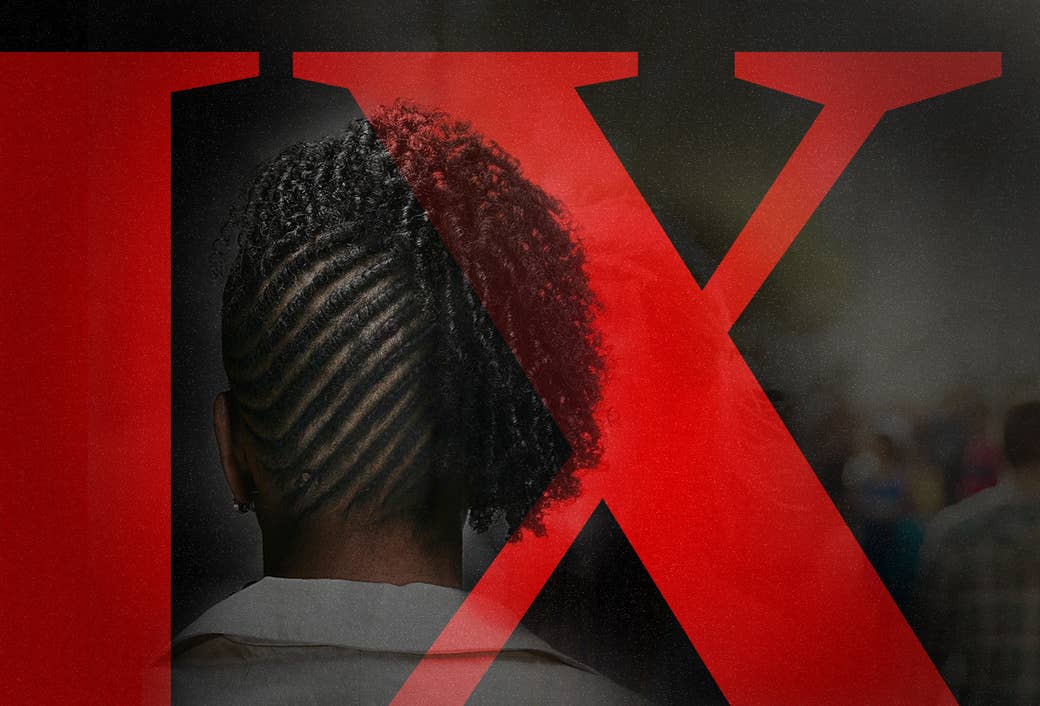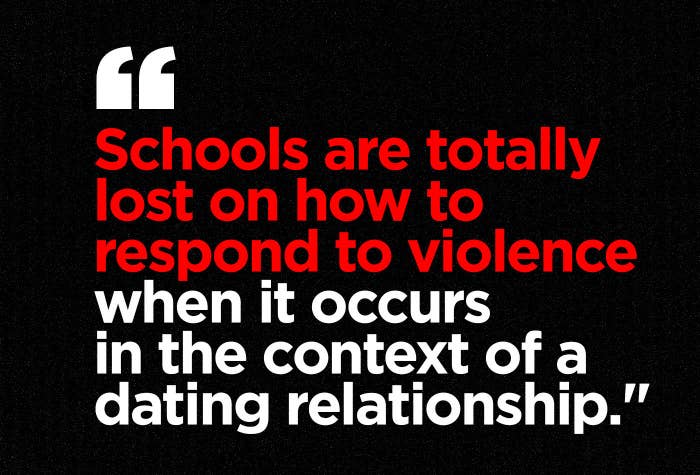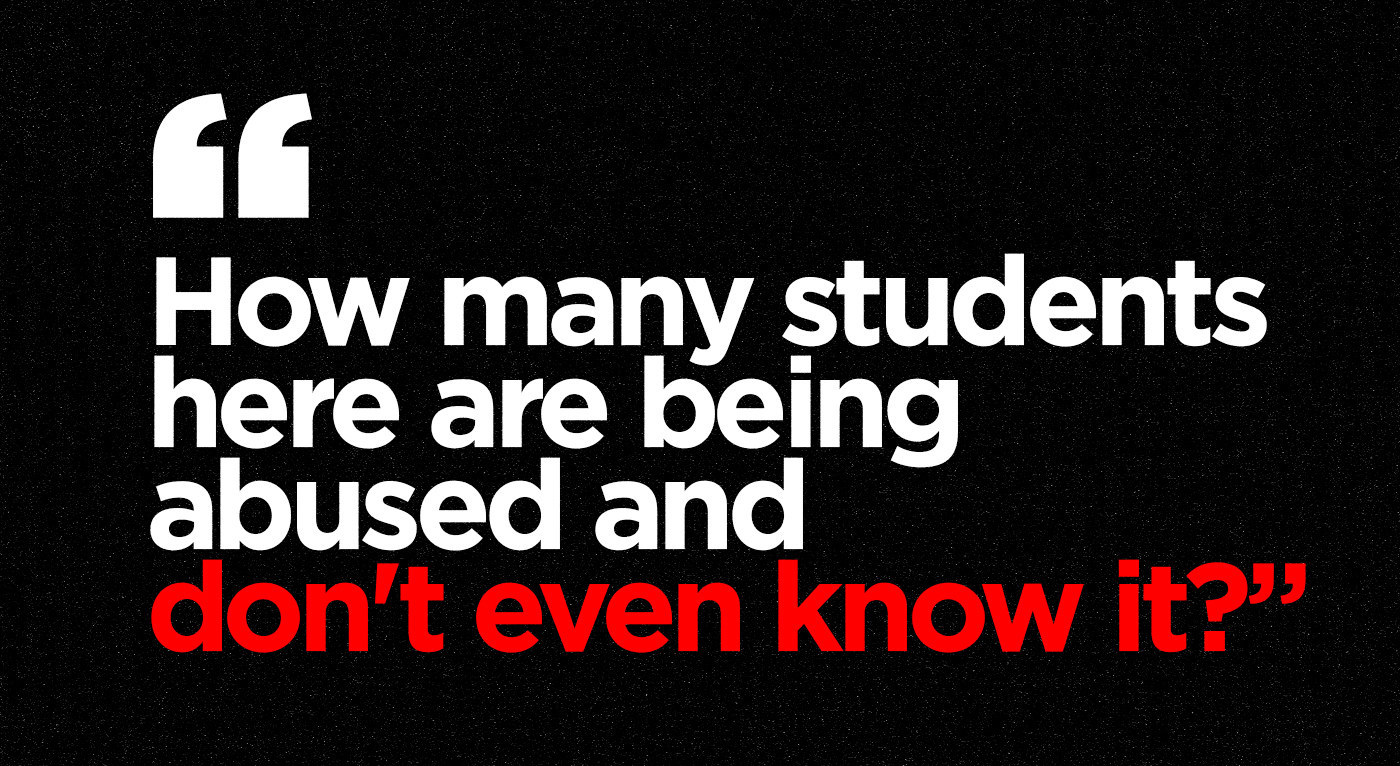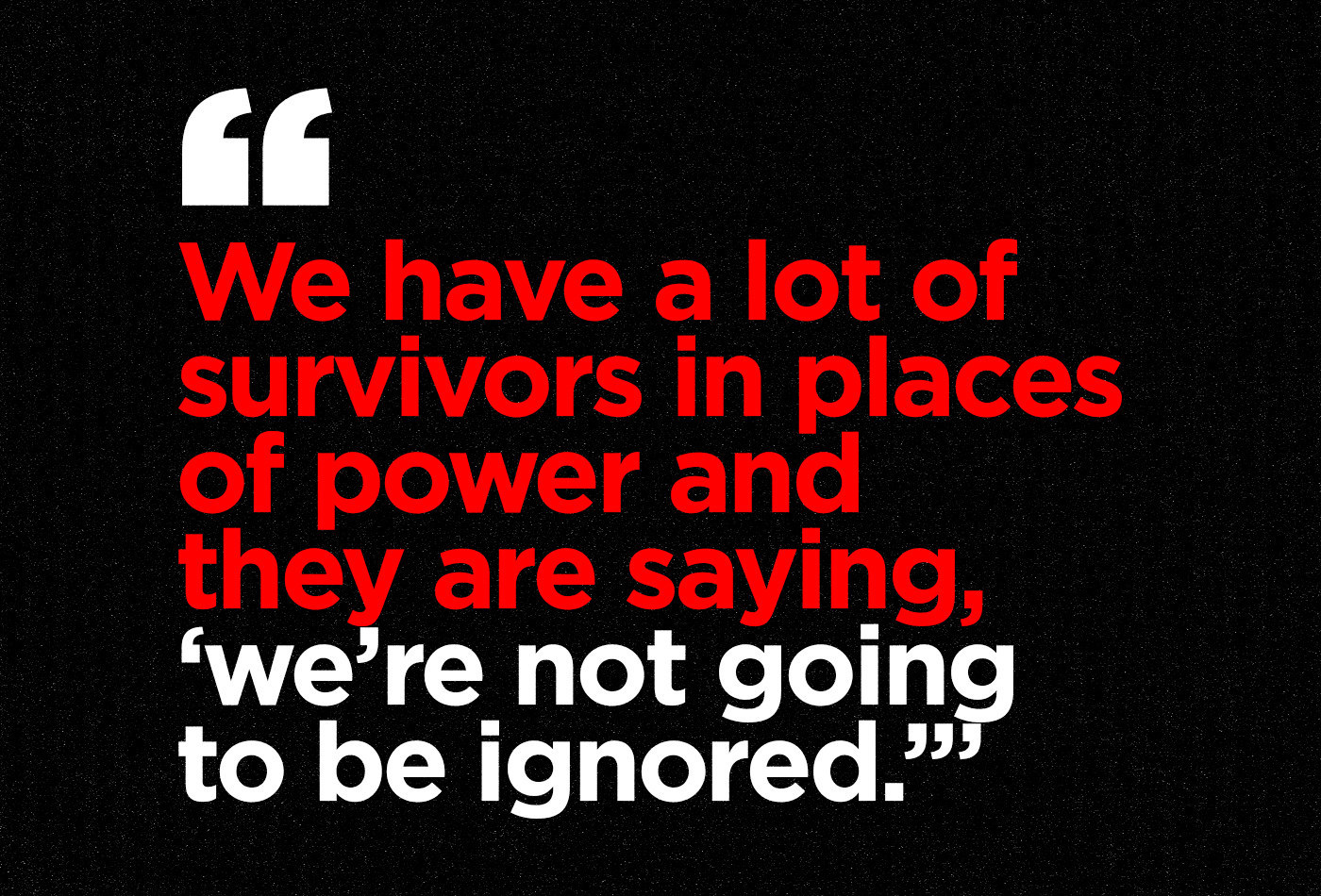
Olivia Ortiz met her first boyfriend when she was an 18-year-old sophomore at the University of Chicago. She said she set “pretty strong sexual boundaries” with him from the start: He was a 21-year-old senior, but he was also her first kiss, and she told him she didn’t want to go any further than that until she felt comfortable. He ignored her and pressured her for months, she said, and often tried to take advantage of her when she was drunk or sleeping. Sometimes, Ortiz said, she would wake up to him touching her while she had been unconscious.
The two dated from fall 2011 into the following spring, when Ortiz told a friend that her boyfriend touched her and made her touch him when she didn’t want to. “That’s rape,” her friend told her. But it was also the only relationship Ortiz had ever known. It wasn’t until he broke up with her that summer that Ortiz confided in a mentor on campus. She suggested Ortiz speak to the dean of students, who offered to set up an informal mediation between Ortiz and her ex.
Informal mediations are prohibited under federal gender equity law Title IX, as well as the University of Chicago’s own policies, even on a voluntary basis, "in matters involving allegations of sexual assault." But Ortiz didn't know that, and the dean who suggested the process didn’t tell her.
Universities all over the country are under fire for how they handle sexual assault under Title IX, the federal law that prohibits discrimination on the basis of sex in any federally funded education program. The 1972 law was best known for its impact on high school and college athletics until 2011, when the Education Department sent a “Dear Colleague” letter to schools reminding them that they needed to be investigating sexual violence cases under Title IX, too. Since then, campus activists have joined together across the country to spread awareness, prompting bipartisan legislation, a White House task force committee, and federal investigations into more than 100 schools nationwide.
But few people know that Title IX also protects students from domestic violence, which includes physical and psychological harm. The next wave of Title IX activism, researchers and activists say, will focus on how colleges investigate allegations of and provide resources to students in abusive relationships. And it’s going to be just as complicated and contentious.
Some studies show that the oft-reported statistic that one in five women is sexually assaulted during college also applies to domestic violence, often called “dating violence” or “intimate partner violence.” Around 20% of college students report having experienced dating violence by a current partner, and college-aged women (16–24) experience the highest rate of dating violence than any other age group, according to the Justice Department. Studies also show that dating violence disproportionately affects the long-term health of women of color.
Even so, “schools are totally lost on how to respond to violence when it occurs in the context of a dating relationship,” said Dana Bolger, co-founder of Know Your IX, an activist group that has lobbied for dating violence to be taken seriously on campuses.
Activists have long felt frustrated that physical, emotional and psychological abuse is seen as secondary to sexual assault, unless a student is seriously injured or killed. That may be because college dating violence victims are often dismissed as being young and inexperienced, Bolger said. When people think of domestic violence, they think of marriage and children, not first-time relationships built over late-night fries in the cafeteria.
“Students may live in a different dorm than their perpetrator,” she said, “but that doesn’t mean their lives and education aren’t threatened.”

During the University of Chicago mediation, Ortiz broke down in tears as the dean lectured her ex for hurting her feelings. Afterward, she still felt confused and upset, and asked the dean whether her decision to report was “too much.” The dean reassured Ortiz that it was the dean’s job to mediate “trouble” between students, according to the Title IX complaint Ortiz’s lawyer later filed against her school.
It wasn’t until Ortiz contacted that lawyer that she learned her civil rights may have been violated.
“Now it’s clear to me that the dean thought what happened was just a dispute, and that I was just being a crazy ex-girlfriend,” Ortiz said. Her complaint led to a still-ongoing federal Title IX investigation against the University of Chicago, but it also led to mental health issues that forced Ortiz to take a leave of absence, she said. Ortiz’s ex-boyfriend graduated the day after the mediation. He did not respond to a request for comment from BuzzFeed News.
Sexual assault and dating violence are not mutually exclusive. But it frustrates Ortiz that politicians, mainstream media, and college administrators themselves mostly ignore the latter. (The University of Chicago, along with the other schools in this story, said it could not comment on individual cases because of privacy laws.) To Ortiz, the national movement is mostly for “straight, white, wealthy women intoxicated and assaulted at a frat by an acquaintance.”
“That wasn’t my experience at all,” she said. “I think what happened to me is still considered sort of normal. It’s accepted.”
Many critics of the Obama administration’s policies on campus sexual assault feel the same way about dating violence: The issue is too tricky for colleges to handle. The adjudication process is meant to be swifter and less harsh than the criminal justice system: Students are sanctioned for disciplinary misconduct, not found guilty of a crime. The process also provides students with interim safety measures and other resources that the police cannot. Supporters say this system is meant to complement, not replace, criminal prosecution, but critics say the consequences of being found responsible for sexual misconduct under these standards are too serious.
“Universities have proved beyond any doubt their incapacity and ineptitude in dealing with nuanced, fact-based accusations” such as domestic violence claims, said Harvard Law Professor Alan Dershowitz, a longtime critic of how colleges handle sexual assault cases. But he believes there’s more of a risk for the accused. Schools are disincentivized to rule in their favor, lest they risk a federal investigation.
“The heavy thumb of the federal government is always on the side of the accuser,” he said. “If they rule in favor of the accuser, they risk nothing.”
Dershowitz believes colleges should abandon the adjudication process completely and stick to providing resources. But the Department of Education’s Office for Civil Rights maintains that universities are responsible for ensuring that student dating violence survivors, regardless of gender or sexual orientation, have equal access to education. That protection is only getting stronger. An October update to the federal Clery Act now requires schools to compile more detailed statistics for dating violence and stalking along with sexual assault, as well as include statements of policy and procedures for dealing with these crimes.
Campuses should approach nonsexual violence in the same way they do sexual assault, said Lisa Maatz, vice president of government relations at the American Association of University Women. Violence against women happens “on a continuum” that starts at sexual harassment and goes all the way up to murder, she said. “Any school that wants to be smart about prevention has to understand that these incidences are not isolated and need to be addressed collectively.”
But schools face specific hurdles when it comes to dating violence claims, which are often more complex than singular allegations of sexual assault. Identifying and leaving an abusive relationship takes time, and the decision to leave or seek a protection order is not always prompted by the most violent incident. Victims are also more likely to recant their reports in fear of retaliation — or even because they’re still in love and don’t want their partner to be punished. Sexual assault prevention methods don’t always apply to dating violence. As Olivia Ortiz put it, “how is bystander intervention supposed to help me when my boyfriend and I go in a room together?”

Regardless of whether they want to contact police — or whether the police are willing to intervene at all — student survivors of dating violence can take advantage of Title IX by asking to switch their dorm room or class schedule. Their Title IX coordinator can help them modify their academic requirements and connect them to on-campus counseling and off-campus legal resources. Under Title IX, schools can provide no-contact orders even before the investigative process is underway.
As with campus sexual assault hearings, both the accused and accusers say that process is deeply flawed.
Miriam Woods knew her relationship wasn’t perfect. Her boyfriend, a fellow graduate student at Indiana University Bloomington, was jealous and obsessive, she said. He called her a “slut” and a “whore,” read her Facebook messages without her permission and compiled them in a notebook, and told Woods that their relationship troubles were all her fault, even though Woods repeatedly insisted she was faithful to him. Woods eventually started cutting herself and thinking about suicide. But she also loved her now ex-boyfriend, she said, and didn’t start to see him as an abuser until he punched her in the arm and face during an out-of-state trip home to visit his mother.
“I was in shock,” she said. “I realized I didn’t even know who this person was.”
Woods reported him to the police a few weeks later, but they declined to press charges. When she emailed her district attorney to ask why, she never heard back, she said. Woods was able to secure a protective order through a state court, but she still saw her ex around campus, which she said made her feel intimidated and unsafe. A friend suggested she contact the school’s Title IX coordinator, which eventually led to a formal complaint. The university found her ex responsible for physical abuse and domestic assault in April. He was suspended immediately until Dec. 31, 2016 — a decision which would be noted on his academic record — and ordered to complete anger management counseling. Woods was told that her ex would be subject to arrest and/or expulsion if he set foot on campus, effective immediately.
Woods was so thrilled that she bought herself a cake decorated with “December 31, 2016” in frosting. But she still felt that the school had improperly handled her case. The process had taken up her entire semester, longer than the school said it would, and she felt that her ex needed more than an anger management counseling course to rehabilitate. Two campus couples counselors they had seen together knew about their problems — one even knew he had struck her, she said — but did not tell her that she had experienced abuse.
The university also failed to uphold its own decision. In May, a friend saw Facebook photos of her ex attending graduation. When Woods called campus police, they told her they had never heard of a no-trespass order against him. The problem was seemingly related to the appeal she filed two days after the panel’s decision, asking for a more stringent, certified batterer intervention program. She didn’t hear anything back regarding her appeal for over two weeks, and that was only after she called repeatedly to complain, she said. Woods' student advocate told her that her decision to appeal meant that, unbeknownst to her, the no-trespass order had been put on hold.
When the university ultimately upheld its original decision, Woods decided to file a Title IX complaint, arguing that the faulty process made it impossible for her to focus on her studies.
“How many students here are being abused and don't even know it?” she asked. “How many are unaware that they have any rights against their abuser at all?”
Woods believes she won her disciplinary hearing in part because her ex admitted he had hit her in an email, and because she had recorded the audio of one of their fights on her phone. But their relationship was complicated, which may be why she couldn’t get the police to take her seriously. Under Title IX, schools use a “preponderance of the evidence standard” — whether a complaint is “more likely than not” to have occurred — rather than the highest standard of evidence, “beyond a reasonable doubt.”
Woods' ex called it a “kangaroo court” to BuzzFeed News. Woods was equally abusive and responsible for their “dysfunctional” relationship, he said. But because she filed the complaint, she had the upper hand.
“I’m guilty for my mistake, but she made mistakes too,” he said. “Everyone thinks I’m the abuser and she is the victim, and it’s not fair. I was a victim of her violence. So why wasn’t she punished, too?”
Woods admitted she slapped her ex twice, although she said it was because his repeated emotional abuse took her to a dark place. “He drove me to a point where I didn’t act like myself,” she said.
Another complicating factor in dating violence cases are the strong ties between accuser and accused. In January, Woods found out that she was pregnant with her ex’s child, which made it harder for her to decide to take action, she said.

Cecelia Gonzalez, who recently filed a joint Title IX and Clery Act complaint against the University of Nevada in Las Vegas, started dating her ex-boyfriend in high school. Although she said he had always been emotionally manipulative and controlling, he didn’t hit her until they entered college together, she said. That’s when he joined a fraternity, Gonzalez said, which she think encouraged him to be more aggressive. The two broke up, but her ex would stalk her, break into her social media accounts, and force her to have sex, she said. It was still hard to let go forever.
“You never think you would be in something like this,” she said. “Until you wake up one day and think, Oh my god, what’s happening?”
It wasn’t until over five months after the last sexual assault that she reported it to the police, according to her complaint. She said they told her she didn’t have a case. The school’s women’s center ultimately helped her fill out a Title IX form.
Gonzalez didn’t know much about Title IX, and the university didn’t explain how it worked. No one explained what a no-contact order was or what it entailed or that she could receive help with her class schedule and test extensions. Instead, she was told that she had used up all of her free counseling sessions and that she would have to seek help off campus, even though she didn’t have a car. “They acted like my relationship had nothing to do with school,” she said. But, due to the stress of navigating the system, she was unable to complete enough credits to graduate as planned.
Adjudication is supposed to be “prompt,” but for Gonzalez, it took 128 days for the university to make its final decision. Her ex was suspended for four years and ordered to complete therapy and community service before he could graduate. Gonzalez was told the sanctions were effective immediately. Soon after, her ex attended a campus event and posted a photo of his diploma online. The campus police told Gonzalez they were unaware of any no-trespass order or disciplinary suspension. Only then was it explained to Gonzalez that the order wouldn’t be instituted until her ex had decided whether or not to appeal, she said.
“Even after the findings of this case, even after the university was clearly aware of what he was capable of, they still put me in danger,” she said. “How was the school ensuring my safety?”
Gonzalez’s ex said, despite the university’s findings, he “never did anything wrong,” but declined to comment further than “It was more of a case of a bitter ex-girlfriend.”
Cases like these have made activists determined to hold schools accountable when they don’t treat dating violence as a matter of equity in education.
Aside from adjudication, universities can and should “think more creatively” about resources, Bolger said. Among her suggestions: free transportation for students in rural areas who wish to go to court to obtain a restraining order, domestic violence-specific training for investigators and hearing boards, and a concerted effort to stop publishing students' on-campus addresses online without their consent, since student abusers can use it to track down victims if they've changed dorms.
The next step is making sure the Department of Education’s rules are actually implemented by universities, said Tara Richards, an assistant professor at the University of Baltimore who researches intimate partner violence and has been working on a comprehensive nationwide survey about sexual misconduct policy compliance.
She agreed that dating violence is increasingly becoming “more of a flashpoint,” which she credits to student activists growing up.
The young people who helped bring campus sexual assault into the spotlight have graduated and are becoming attorneys and academics, meaning they’re able to “lead a more nuanced conversation” that includes dating violence, she said. “We’ve reached a tipping point in higher education, where we have a lot of survivors in places of power and they are saying, ‘We’re not going to be ignored.'’’
